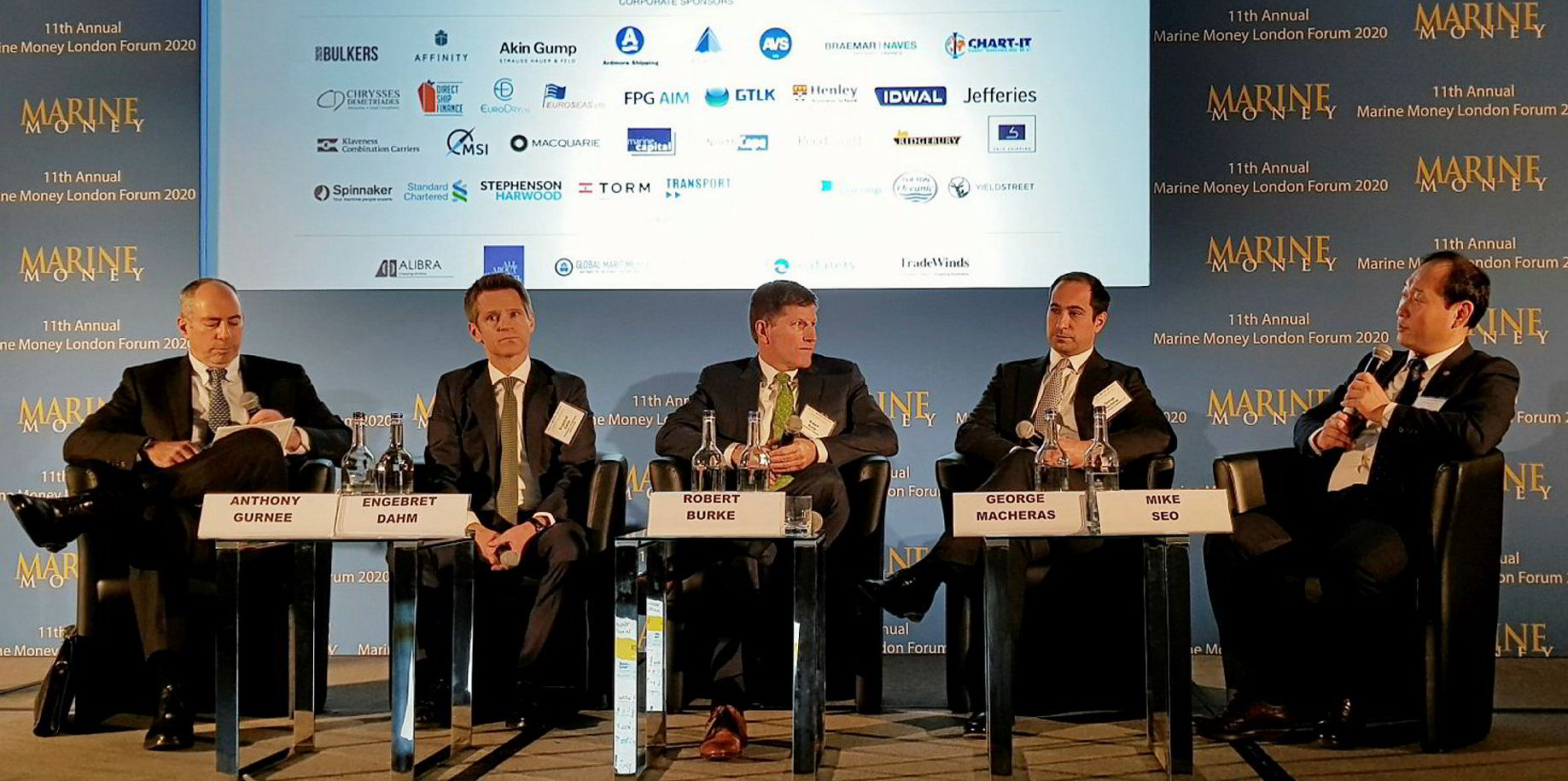While gearing up to meet sustainability requirements from their clients and capital providers, shipping companies have faced challenges from a bad public image and rising investment costs, an industry conference was told on Wednesday.
During a panel discussion of the Marine Money London forum, several industry officials pointed out a failure to comply with environmental, social and governance (ESG) standards could be fatal to one’s business.
“If you don't have any ESG framework in place, you may not even get your foot in the door as to asking for the money, which will put you into a severe disadvantage,” Watson Farley & Williams’ partner George Macheras said.
“Banks and financiers will not want to lend to you. Charterers might not want to take ships from you. Managers might not want to manage your ships.”
The remarks have come as members of the IMO are set to unveil new regulations in October that will help reduce greenhouse gas emissions from international shipping by 50% from the 2008 level before mid-century.
A total of 16 major western ship financiers have signed up for the Poseidon Principles requiring the borrowers to meet the long-term decarbonisation goal, while institutional investors like BlackRock are also increasing their ESG focus.
“The biggest challenge is to move on the environmental side…We have to start decarbonising,” said Klaveness Combination Carriers chief executive Engebret Dahm, adding that his customers are also becoming more environmentally conscious.
“This (ESG) has become increasingly important… With the new rules and regulations coming onstream, I think it really destroys the business If you can't behave.”
Challenges ahead
According to Morningstar, sustainable mutual and exchange-traded funds in the US attracted record cash inflows of $20.6bn on a net basis last year, nearly four times the previous record set in 2018.
However, ESG funds tend to steer away from fossil fuels, effectively excluding shipowners with large exposure to oil and coal shipping.
Adding salt to the wound is that shipping companies, generally operating in a business-to-business model, often attract attention from general media only when maritime disasters like oil spills occur or crews are abandoned at sea.
“It's important to have a code to live by…anything that raises the standards uniformly,” said Ridgebury Tankers’ partner and CEO Robert Burke. “[But] we do have a bad reputation.”
“The public has no interaction with our industry. The only time they see us is when bad things happen.”
A shortage of funds might hamper the IMO decarbonisation efforts, which, according to a study of University College London, could require an average of $50bn to $70bn annually from 2030 to 2050.
“The pressure is still mounting. Nobody knows what it's going to cost,” Burke said.
Benefits in being sustainable
Dahm pointed out decarbonisation can be a “win-win” situation, though, as shipowners can reduce emissions by reducing fuel consumption and improving operational efficiency.
“I think it is a great opportunity,” said Dahm. “Actually, you earn more money.”
Macheras said meeting ESG requirements should not result in more liabilities for any shipping firm. “It's simply saying you need to comply with certain regulations. Please make sure you do and please showcase to us that you do.”
“We want to help our clients tackle the challenges on the emissions and embrace the regulatory framework to maximize their profits in an environmental and responsible manner.”
While recognising ESG can be hard to define, Ardmore Shipping president Anthony Gurnee is principally positive about the requirements. Communication and education on the criteria would be helpful, he suggested.
“Our view is that ESG is a framework for people external to our companies to assess how we're doing,” Gurnee said. “It also helps you to be very forward looking and figure out what your future is.”







